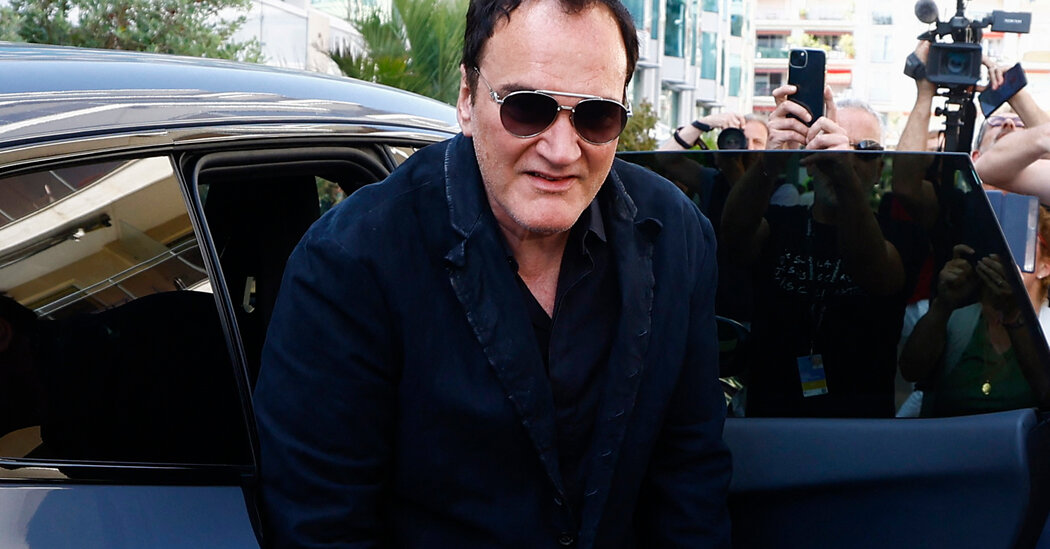During an engaging conversation at the Cannes Film Festival, Quentin Tarantino delved into various aspects of his book “Cinema Speculation.” He offered a glimpse into his highly anticipated 10th and final film, tentatively titled “The Movie Critic.”
While Tarantino has often embraced violent scenes in his own movies, he expressed nuanced views on violence in cinema, while discussing influential classics such as “Rolling Thunder” and “Taxi Driver.
Quentin Tarantino on The Impact of “Rolling Thunder”

Tarantino revealed that John Flynn’s “Rolling Thunder” played a significant role in shaping his perspective as a film critic. Although he never published formal reviews, Tarantino began to appreciate the intricacies of the film and form opinions on its nuances. When asked about the level of violence in the movie, Tarantino acknowledged his affinity for violent films but emphasized the importance of meaningful violence that contributes to the narrative.
Quentin Tarantino on Challenges in Filmmaking
Tarantino pointed out the disparity between Paul Schrader’s original screenplay for “Rolling Thunder” and the final version directed by Flynn. He highlighted the removal of a significant revenge element and the resulting loss of character depth. Despite his reservations, Tarantino acknowledged that some viewers genuinely appreciated the film, including the late Johnny Cash, who praised “Natural Born Killers.”
Political Aspects and Personal Expression

Regarding Don Siegel’s “Dirty Harry,” Tarantino aligned himself with the director’s intention to electrify audiences rather than make a political statement. Tarantino emphasized his commitment to incorporating political aspects into his own works, asserting his creative freedom as a writer and filmmaker.
Moral Boundaries and Violence
Tarantino disclosed his personal boundaries when it comes to violence in film. While he is known for his love of violent movies, he draws the line at depicting harm to animals or insects on-screen. Tarantino firmly believes in the make-believe nature of cinema, where violence remains a fictional construct. He also criticized the incompetence factor often present in excessively violent scenes.
Rewriting History and Revenge
Examining his own films, Tarantino discussed his tendency to rewrite history by empowering marginalized characters with violent revenge. Inspired by Akira Kurosawa’s approach, Tarantino shared how he often wrote himself into corners and found inventive ways to resolve his stories, such as the iconic ending of “Inglourious Basterds.” Similarly, he crafted “Once Upon a Time in Hollywood” to save Sharon Tate and exact vengeance on the antagonists.
The Mystery of Tarantino’s Final Film
Tarantino remained tight-lipped about his forthcoming final project, refusing to divulge details until audiences have the opportunity to experience it. Expressing the temptation to perform monologues from the film’s characters, he playfully hinted at the anticipation surrounding his latest work.
As the acclaimed director nears the end of his illustrious career, fans eagerly await Tarantino’s final cinematic masterpiece, expecting his unique blend of captivating storytelling and thought-provoking violence.
